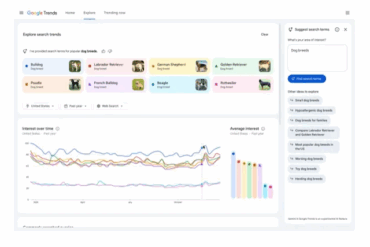Ad industry stakeholders play a key role in abating data-based discrimination, argues UM Worldwide’s Arielle Garcia as part of The Drum’s Data & Privacy Deep Dive.
In a recent report, the Interactive Advertising Bureau aptly asserts that the “looming peril” facing the industry is regulation and not the third-party cookie deprecation that has held a fixed place on marketers’ agendas for nearly three years.
Recent headlines have been dominated by social platforms’ restructuring actions following disappointing earnings, several of which vaguely cite the challenging ‘macro environment’ – triggering speculation by industry experts on platforms’ reluctance to acknowledge the profound impact of Apple’s AppTrackingTransparency changes on their advertising business.
With five US state privacy laws set to be effective in 2023, the EU’s digital reform progressing via the Digital Markets Act and Digital Services Act, and sustained regulatory and enforcement momentum, the headwinds caused by Apple-induced signal loss are a harbinger for challenges that will impact all corners of the online ad ecosystem.
Yet, like platform-driven changes, regulation itself is a downstream symptom of a deeper root cause. It is one that EU lawmakers and regulators around the world, including the increasingly vocal and resourced US Federal Trade Commission (FTC) continues to expound: the risks to individuals and to society bred from the unchecked commercial data collection and use that underpins the online advertising industry – and sustains the business models of platforms that wield tremendous influence on the information economy.
The growth of data-based discrimination
The FTC held its annual PrivacyCon event on November 2 this year, featuring research across several of these topics ranging from consumer surveillance, children’s privacy, dark patterns, along with an entire panel focused specifically on adtech. A particularly salient presentation interrogated whether cookie-less solutions would indeed deliver on the promise of enhanced privacy. Among the findings of Patrick Parnham’s research is that alternative identifier solutions create dynamics that increase the likelihood that audiences syndicated to platforms for activation may “override existing targeting restrictions” – or the “loosely-enforced” platform policies purported to prevent targeting on sensitive data such as health information and prohibiting discriminatory targeting of opportunity ads like that which relates to a target’s housing, employment and credit data.
Put simply, this means that proposed solutions are at risk of leading to more – rather than less – data-driven discriminatory outcomes. The US Department of Justice’s recent settlement with Meta requiring the sunsetting of ‘Special Ad Audiences’ and fundamental changes to Meta’s ad delivery systems to mitigate disparate impact further emphasizes the real-world harms associated with these gaps in accountability.
This paradoxical outcome underscores the importance for marketers and the broader ecosystem to recognize the deeper challenge – one that is far more profound than what is traditionally associated with ‘privacy’ in the collective conscience of the industry.
The fundamental challenge is not about cookie banners or liability volleyball – it is about realigning incentives to foster accountability and to serve as a check on optimizing engagement and attention in exclusive contemplation of commercial outcomes, even where at the expense of societal and individual harms.
The call to action is about restoring trust in industry and institutions, promoting equitable access to opportunities, mitigating information asymmetry and algorithmic amplification of misinformation and disinformation, enabling personal autonomy, protecting liberty and safeguarding democracy.
For lawmakers, the task at hand is striking the right balance of protecting consumers and promoting innovation and competition in a healthy digital economy – while safeguarding individual privacy, human rights and civil liberties, preventing discriminatory data use and sustaining national security.
Establishing a new paradigm
Advertising is not the cause of these challenges, but making meaningful progress requires open and active engagement of stakeholders across the online advertising ecosystem. Advertising undoubtedly plays an important role in society; and of course, relevant advertising is mutually beneficial to brands and consumers alike. However, where unchecked, relevance can become a euphemism for discrimination and intrusion. Transparency and fairness are the fenceposts that separate personalization from manipulation, exploitation and the erosion of trust.
Preserving the benefits that the ad-funded web offers to society requires collaboration across the industry in the development of a new paradigm for data collection and use in which each party in the online advertising supply chain has unique responsibilities to fulfil.
Feature Image Credit: Adobe Stock





